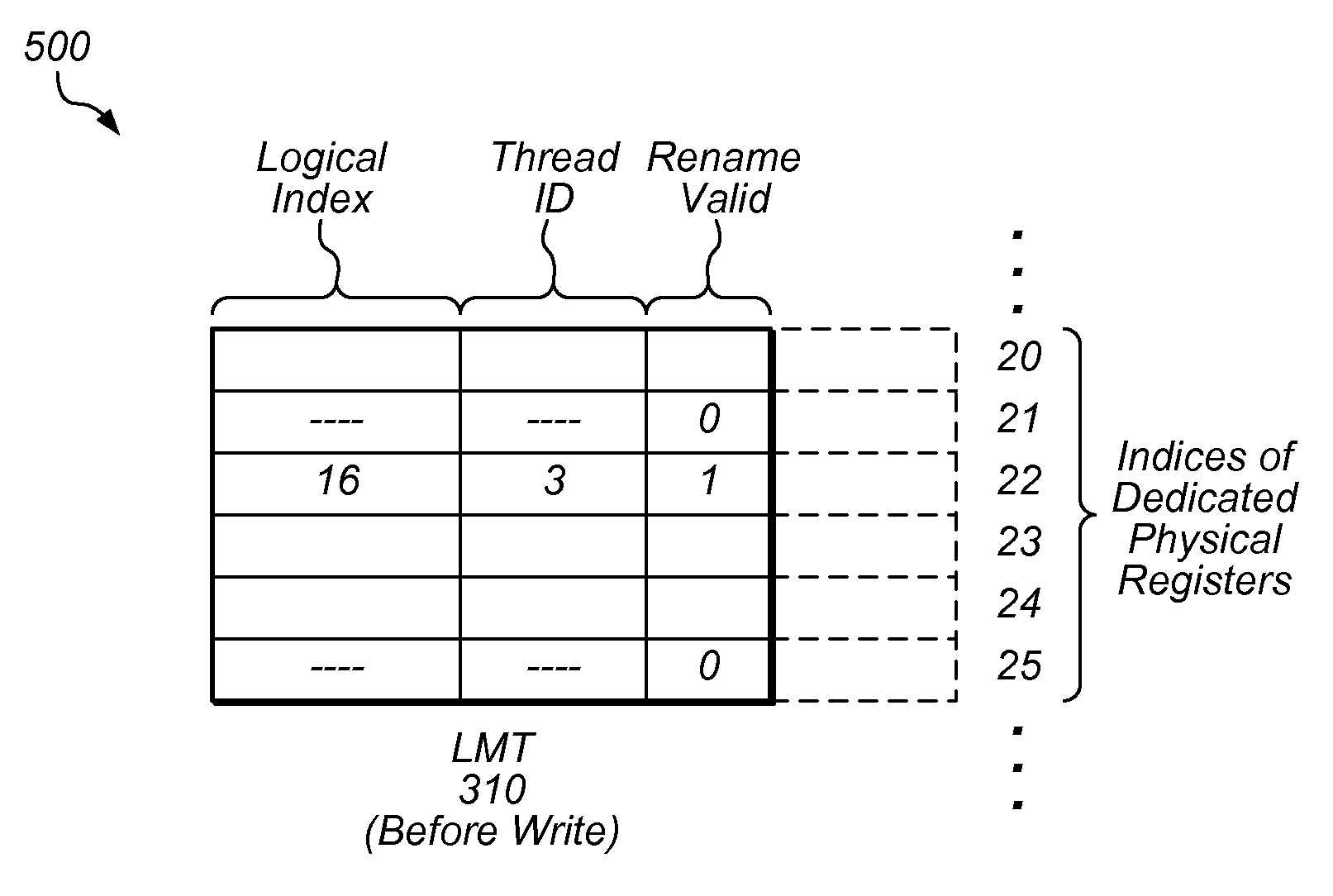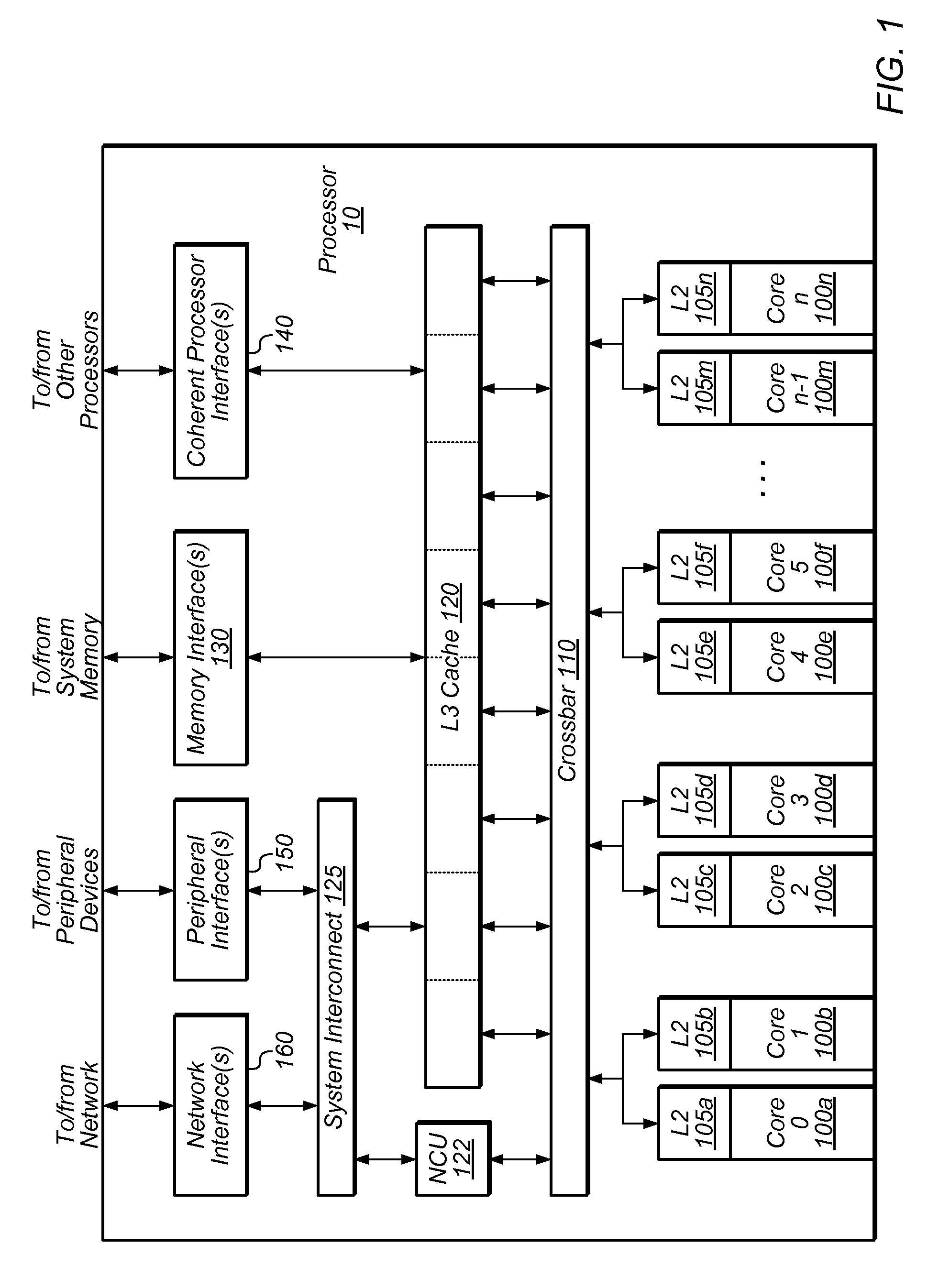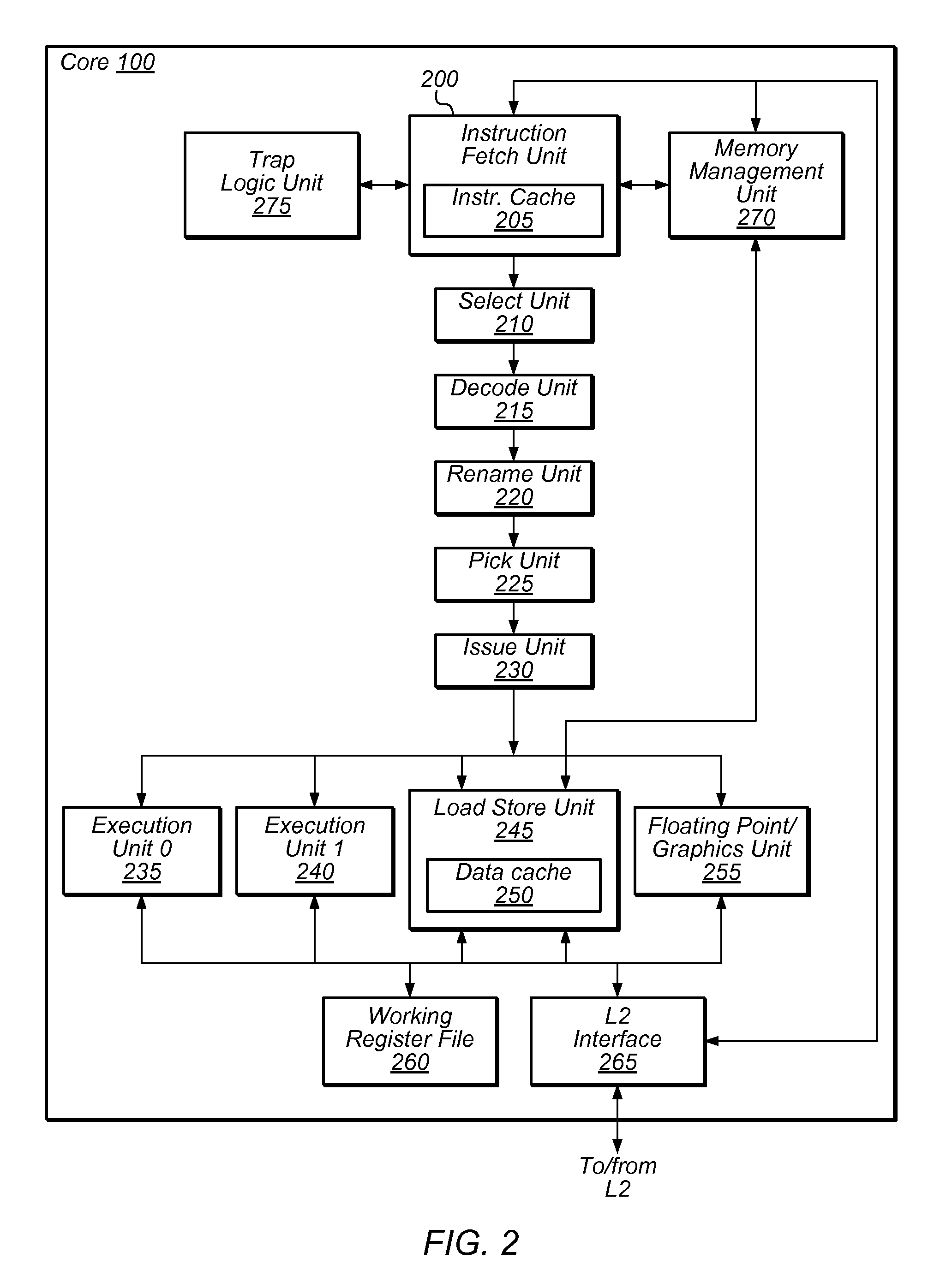Logical map table for detecting dependency conditions
- Summary
- Abstract
- Description
- Claims
- Application Information
AI Technical Summary
Benefits of technology
Problems solved by technology
Method used
Image
Examples
Embodiment Construction
[0029]Co-pending U.S. patent application Ser. No. ______, entitled “Physically-Indexed Logical Map Table,” U.S. patent application Ser. No. ______, entitled “Apparatus and Method for Handling Dependency Conditions,” and U.S. patent application Ser. No. ______, entitled “Processor Operating Mode For Mitigating Dependency Conditions,” are filed concurrently with the present application and are incorporated by reference herein in their entireties.
[0030]This specification includes references to “one embodiment” or “an embodiment.” The appearances of the phrases “in one embodiment” or “in an embodiment” do not necessarily refer to the same embodiment. Particular features, structures, or characteristics may be combined in any suitable manner consistent with this disclosure.
[0031]FIGS. 1-2 present an overview of an exemplary processor. FIGS. 3-8 relate to embodiments of a physically indexed logical map table. FIGS. 9A-D describe dependency conditions, one instance of which may be referred ...
PUM
 Login to View More
Login to View More Abstract
Description
Claims
Application Information
 Login to View More
Login to View More - R&D
- Intellectual Property
- Life Sciences
- Materials
- Tech Scout
- Unparalleled Data Quality
- Higher Quality Content
- 60% Fewer Hallucinations
Browse by: Latest US Patents, China's latest patents, Technical Efficacy Thesaurus, Application Domain, Technology Topic, Popular Technical Reports.
© 2025 PatSnap. All rights reserved.Legal|Privacy policy|Modern Slavery Act Transparency Statement|Sitemap|About US| Contact US: help@patsnap.com



